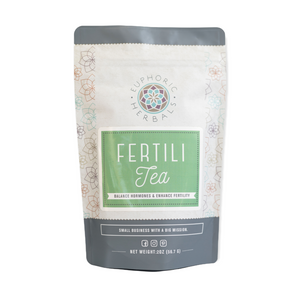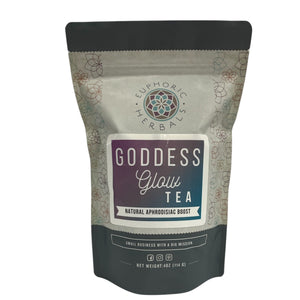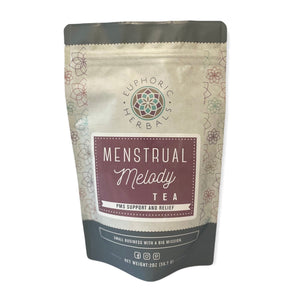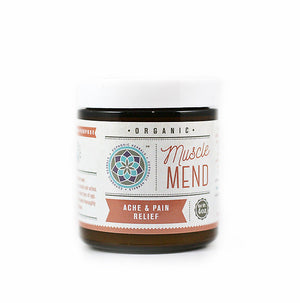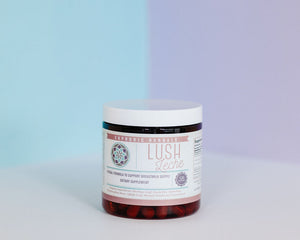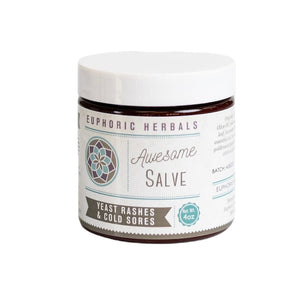Menopause is a stage of life that typically starts after age 45 and before mid-50s for most women. During menopause, the ovaries stop producing estrogen and progesterone, eventually leading to a cease of the menstrual cycle.
A woman is considered to have reached menopause a year after her last period.
Symptoms of Menopause
Menopause is a natural part of life, not a medical condition, but it can still come with unpleasant symptoms.
About two-thirds of of women will experience symptoms once they hit menopause. (1) These symptoms include hot flashes, night sweats, vaginal dryness, insomnia, fatigue, mood swings, and irritability.
Menopausal women may also be at a higher risk for diseases like osteoporosis and cardiovascular disease. (2)
For a while, hormone therapy was the standard treatment for menopausal symptoms. When risks associated with hormone therapy were discovered, many women have decided to opt for a drug-free approach.
If you wish to do the same, here are some of the most-used herbs and natural remedies for menopause.
Best Herbs For Menopause
Herbs and herbal medicine have long been used to help relieve menopausal symptoms.
There are several different herbs that can be used separately or in combination to reduce symptoms like hot flashes, mood swings, and night sweats.
To get relief without choosing and blending herbs yourself, you can opt for something like this Menopause Melody Tea that is a natural remedy for menopause in itself.
Sage

Sage is an herb you might use in cooking, but it also has medicinal properties.
Sage leaf can help with various menopausal symptoms like hot flashes, mood swings, and night sweats.
Although there has not been much research done yet on sage for menopause, a few small studies back up this traditional remedy.
One study done in Switzerland found that a fresh sage preparation reduced the severity and amount of hot flashes in participants. (3)
Motherwort

Motherwort is a very supportive herb for women through many stages of life, including menopause.
The active compounds in motherwort help the body to process and break down hormones. (4)
This helps with symptoms like hot flashes, vaginal dryness, mood swings, and irritability. Motherwort can also help to calm heart palpitations and relieve stress and anxiety. (5)
Taking motherwort with sage or black cohosh can make it even more effective for hot flashes and other symptoms.
Black Cohosh

Black cohosh is one of the natural remedies for menopause that has received the most scientific research.
The roots of this plant have been used for many years to treat various medical conditions.
For menopause, black cohosh can especially help with hot flashes, mood swings, and sleep patterns. (1)(6)
Dong Quai
Dong quai, sometimes known as female ginseng, has been used for years in Chinese medicine and by western herbalists to support the female body.
It has the potential to help with menopausal symptoms, especially hot flashes.
One study showed that an herbal preparation of chamomile and dong quai reduced the number and intensity of hot flashes and also helped with sleep and fatigue. (7)
Dong quai may work better in an herbal blend with other herbs that help with menopausal symptoms.
This herbal tea specifically formulated for menopause contains dong quai along with sage, black cohosh, motherwort, and other supportive herbs.
Other Natural Remedies for Menopause
There are other natural and home remedies that can help you through menopause.
Phytoestrogens, calcium, and vitamin D can all help with menopausal symptoms.
A healthy diet, maintaining a healthy weight, and getting enough exercise can also contribute.
Phytoestrogens
Phytoestrogens are natural plant compounds that can act as precursors to estrogen and mimic the effects of estrogen in the body.
Since estrogen production drops during menopause, consuming foods and herbs rich in phytoestrogens can help to balance hormones and relieve symptoms. (8)
Soy
Soy is one of the foods that is high in phytoestrogens. Soy products like tofu and tempeh may also contain phytoestrogens depending on how they are processed.
While some studies show benefits of regularly consuming soy, there is still debate on whether a large amount of it is good or bad for health. (9)
Flaxseed
Flaxseed contains a type of phytoestrogen called lignan, which is also found in other high-fiber foods.
Studies have not yet confirmed whether this type of phytoestrogen can help with menopausal symptoms, but flaxseed is not as controversial as soy when it comes to health benefits and may be worth trying.
Shatavari
Shatavari, also known as wild asparagus, is a medicinal herb often used in Ayurvedic medicine.
It contains a good source of phytoestrogens and is often recommended for menopausal women by Ayurvedic practitioners and herbalists.
It can especially help with hot flashes, vaginal dryness, and insomnia. (10)
Calcium and Vitamin D
Hormonal changes that occur during menopause can weaken bones, putting menopausal women at a higher risk for osteoporosis.
Adding more calcium into the diet can replenish calcium used up during menopause and may help with symptoms as well as lower the risk of osteoporosis.
Vitamin D is important in helping your body use the calcium, and it may also help reduce the risk of hip fractures due to weakened bones. (11)
Good sources of calcium include green, leafy vegetables, beans, yogurt, and milk.
The sun is the best source of vitamin D, but it can also be supplemented.
Herbs like sage, rosemary, and oatstraw are naturally high in calcium. A tea made with these herbs can help with menopausal symptoms and calcium levels.
Side Effects and Precautions
It's always a good idea to talk with your doctor or natural health practitioner before trying natural remedies for menopause.
While most of them are safe, some may interact with medications or affect medical conditions.
Foods and herbs containing phytoestrogens should be avoided or consumed minimally by those with estrogen-sensitive cancers.
Because many of the natural remedies for menopause affect hormones, they may interfere with other hormone drugs or supplements.
Using Natural Remedies for Menopause
Many of the herbs recommended for menopause can be used in a tea, as a tincture or extract, or taken in capsules or tablets.
It is best to consult with a qualified herbalist or natural health practitioner for the best dose to take for your unique health situation.
Go Natural During Menopause
Because menopause is not a medical condition, it doesn't need to be "treated."
However, there are many natural remedies for menopause that you can try to relieve its unpleasant symptoms.
Try an herbal tea blend for relief, raising your calcium and vitamin D intake, or consuming a good source of phytoestrogens.
These small changes could help get you through menopause more easily!






















































